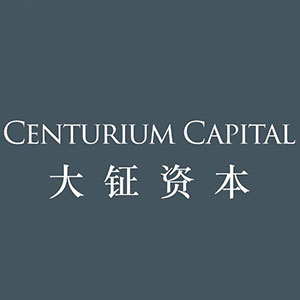AVCJ Awards 2019: Firm of the Year – Mid Cap: Centurium Capital
2020-02-05
China-focused Centurium Capital has enjoyed a productive 12 months, closing its debut US dollar fund, deploying most of the capital, and securing an early liquidity event.
Pictured: Michael Chen, a partner at Centurium Capital, accepts the Firm of the Year - Mid Cap award
This story was authorized by Asia Venture Capital Journal (AVCJ) to run on the corporate website of Centurium Capital. Please click here for the original piece published by AVCJ on January 30, 2020.
By Tim Burroughs
For much of the past decade, China Biologic Products benefited from strong industry tailwinds. It was operating in a seller’s market – underpenetrated, undersupplied, and with little need to offer a differentiated message to a stable client base. Those supply-demand dynamics have changed. There is more competition, but the company doesn’t have the skillsets to carve out an edge through better sales and marketing or operational efficiencies that can ease pressure on the bottom line.
Making the necessary operational refinements isn’t easy in the full glare of the public markets. In August 2018, a consortium of private equity investors made a substantial commitment to in terms of capital and reform. Four months ago, the same investors launched a take-private bid. The include Centurium Capital, a PE firm established by David Li, who backed China Biologic during the expansion period with Warburg Pincus and now promises a very different type of solution.
China Biologic isn’t unique within the Centurium portfolio. The firm closed its debut US dollar-denominated fund at just over $2 billion in mid-2019 and has since committed 80% of the capital to seven companies, with two more deals pending announcement. More than half the corpus has been deployed in control transactions involving traditional businesses that recognize the need for a meaningful response to a rapidly evolving commercial environment.
“Chinese companies have been used to easy growth, with high tides raising all boats. They haven’t been through down cycles,” says Li. “Now with a slowing market and increasing competition from new models and technologies, they are faced with challenges they haven’t dealt with before, and they are looking for solutions and advice. Often this involves restructuring management and systems, so they can run more efficiently, and continue to grow the bottom line.”
Turning points
Transformation sits at the heart of Centurium’s strategy, but it is applied in different forms and contexts. Li estimates the split is 60-40 between efficiency-driven turnarounds of traditional businesses and growth plays for nascent companies with technology-enabled solutions that can disrupt traditional consumption patterns. However, there is plentiful middle ground. Equally, Centurium might find itself dealing with complexities that arise from convoluted capital structures or management teams and systems that can no longer sustain expansion.
Luckin Coffee is the firm’s best-known investment, having risen from nothing to become China’s second-largest coffee shop chain within the space of two years. Its IPO in May 2019 represented Centurium’s first liquidity event. The Centurium team was involved in the development of Luckin’s business model – its founder was previously COO of CAR and Ucar, both companies that Li backed while at Warburg Pincus – which is said to rely heavily on technology to deliver supply chain efficiencies and customer insights.
Some of the other investments are not so different in terms of mode of engagement. Centurium spent two years working with eyewear brand Loho before committing any capital. Since then, the company has expanded from fewer than 400 stores to nearly 700, but the key changes were in supply chain management: reducing the time taken for a new design to go from conception to launch, which means the company responds to demand trends faster and takes less inventory risk.
Brains trust
At one point, the private equity firm advised Loho to slow the pace of new store openings to allow for proper assessment of store unit economics. Maximizing supply chain efficiency has implications for store location, size and operating structure – Loho shifted from a directly-owned to a franchise model – the interaction between online and offline channels, and human resources. Centurium would provide feedback through daily interactions with senior management.
“We are very operational and strategic centric, but we don’t run an outsourced consulting model, which some of the global PE firms have tried to do in China and not with much success,” says Li. “Our deals often involve significant operational transformation, so we need strong leadership – people who have a lot of credibility and authority and who approach things with an owner mentality. Once we put the right systems in place, we can recruit from outside or promote from within and have people run the business.”
Centurium’s strategy lends itself to a concentrated portfolio. There are likely to be no more than a dozen companies in Fund I, with check sizes of around $300 million for control transactions and $80-100 million for deals in which it takes a significant minority interest. The firm has a team of approximately 20 investment professionals, including an in-house operations function.
This represents a relatively rapid built-out for a firm that is barely three years old and spent its formative period deploying renminbi funds before launching a US dollar vehicle in 2018. Asked to identify the major challenges in setting up a new GP, Li highlights the need to combine global best practices with local insights and experience in order to provide bespoke solutions to Chinese companies.
“This requires us building an institution that is differentiated in terms of culture, process and structure, which is an exciting exercise,” he explains.



 京公网安备 11010502038287号
京公网安备 11010502038287号